by ASJAD NAZIR
LOOK back through the history of Indian cinema and there have been landmark movies that have expanded the horizons of the industry.
Powerful new drama Chhapaak looks set to be added to that illustrious list of commercial Hindi films because it not only presents the Bollywood heroine in a new way, but also tackles a massively important issue in a manner that will impact society. It is a story never told before by the industry.
At the centre of the Meghna Gulzar-directed drama is popular star Deepika Padukone, who takes on the role of an unbreakable woman, who rises up again after a horrific acid attack.
The inspiring story is based on the life of acid attack survivor Laxmi Agarwal, who went from a life-changing event to becoming a motivating figure who helped trigger important social change.
It was clear the emotionally demanding subject matter had affected Deepika, when Eastern Eye caught up with her to discuss Chhapaak. The current queen of Hindi cinema humbly gave emotional, heartfelt responses talking about a movie that clearly means so much to her.
With your performances, you not only empower women, but also the film industry. Has that been a conscious decision to choose these types of roles?
I would say a little bit of a yes and a no. It is not an absolute conscious decision because it is not often you come across scripts like this (Chhapaak). But at the same time, I do like being part of films that can create some sort of impact, although it is not always possible. I do look out for subjects and stories that can influence people’s lives. I also like challenging the system a bit.
What do you mean?
I am someone who, for example, doesn’t like taking a no for an answer. I don’t like not trying. I would rather try something unique, new or different and not succeed, than not trying at all. Not trying and not pushing myself, I get restless, so I constantly need to keep pushing the envelope for myself. Chhapaak is like nothing I have ever seen in commercial Hindi cinema.
What did you like in particular about this project?
That it’s about the human spirit, while throwing light on the increase in acid violence, and that as a nation this is something we need to be aware of. We need to educate ourselves, create that awareness and all of those things. At the same time, it is much more about the undying human spirit. And I think that for me really was why I wanted to tell the story.
It’s a universal story…
Yes! Asjad, you are in the UK, where acid attacks have been on the rise in the recent years. Of course, the reasons why they happen (in India) are slightly different from those in the UK. But the fact remains that acid violence is not just an issue in India, but globally too. It is something that needs to be addressed in an urgent and serious manner. Beyond that, the takeaway for me really was Laxmi; the film rests on her, but also the different girls I had the privilege to meet. Their spirit is something we need to see and experience.
As an actor how do you prepare for a role like this that hasn’t been done before in such a high-profile Indian film?
To be honest, some of it is a physical transformation. That really is the easier part. The more challenging aspect is the emotional bit. That is something you are never really entirely prepared for, no matter how much time you give it; study the character, I’ve seen material on her, I met her several times, studied her videos, looked at her interviews, seen pictures and understood her body language. You do all those things. Then the prosthetics itself. We spent so much time figuring that out and that was a process in itself. But beyond that what I felt was more important was the emotion that needed to come through. That is not something you can measure or plan, or prepare. I think you have just got to be honest in that moment. Either it happens or it doesn’t. That scene in the trailer of you looking in the mirror and screaming affected me deeply for days.
How much did this role affect you?
It has. I have always said this that films and characters do affect you. They never entirely leave your system, but this has affected me like none other, and I feel that is why it has been an emotional journey for me. I think I have been breaking down really easily, which hasn’t happened to me because of a film in a while. I appreciate that people see that. I have been breaking down a lot in public of late and a lot of that has to do with the fact it has just been so traumatic and emotionally it has been such a rollercoaster, that I feel like a lot of it is probably just coming out now. But that is the price of being an actor.
How much did it help you to have a strong female filmmaker like Meghna Gulzar as a director?
It helped me immensely, Asjad. I feel like while the subject, story and narrative are one thing, to have the right director showcase it and tell the movie are equally important. And for me while 50 per cent of it is the story in itself, the other 50 per cent was the fact that Meghna Gulzar was going to be telling the story. The marriage of both is extremely important. Sometimes you come across lovely, interesting subjects, but you don’t necessarily have faith in the director. It has to be a marriage of both things. It took me all of two minutes to say yes to this film.
I don’t think I have seen a trailer in my 20-year career that has received such an emotional response as Chhapaak. How much does that mean to you?
Yes. Even I haven’t come across in my entire career something as powerful as this, and it is heartening. It certainly feels like we are on the right path, but we still have a long to go and still have the movie to release. We appreciate it, we feel immense gratitude, but at the same time there is still a long journey ahead because eventually it is the film that has to live up to all of this that we have created.You are so successful and at the top, but how do you feel before a movie releases today?
Of course, you get nervous and excited. It is all these different emotions. There are the nerves, excitement, anxiety, and you don’t sleep as much because you are constantly thinking about looking at your phone, to see if you have missed anything or have forgotten something. Or you suddenly have a thought and want to share it with everyone. So there is a lot of anxiety, especially with a movie like this. It is not one of those films you can just promote blindly and do in your sleep.
You have shown a lot of emotions in your interviews and are doing it now.
Yes, every interview I am doing is an emotional moment for me, to have to think about those scenes, character, film and moments. Every interaction and interview I do, there is a lot that goes into it, so it has been demanding. It has been a lot of anxiety in a good way. Looking forward to it, but at the same time you are nervous. You want to quickly fast track to the day the film is released to see how people actually receive it. There are so many thoughts and emotions going through my head at this point.
You have conquered cinema in the past decade, what is the plan for the next?
(Laughs) No, I don’t think I have conquered anything. I have learned a lot. It has been an exciting journey. But if I am not constantly pushing the boundaries, I get restless. There is so much more to do. There is so much more I want to do and say though my movies.
Finally, I want to say I am incredibly proud of you for doing such an important film like Chhapaak.
Thank you, it means a lot. It really does.
Chhapaak is in cinemas now





 Lunchbox is a powerful one-woman show that tackles themes of identity, race, bullying and belongingInstagram/ lubnakerr
Lunchbox is a powerful one-woman show that tackles themes of identity, race, bullying and belongingInstagram/ lubnakerr She says, ''do not assume you know what is going on in people’s lives behind closed doors''Instagram/ lubnakerr
She says, ''do not assume you know what is going on in people’s lives behind closed doors''Instagram/ lubnakerr








 He says "immigrants are the lifeblood of this country"Instagram/ itsmetawseef
He says "immigrants are the lifeblood of this country"Instagram/ itsmetawseef This book is, in a way, a love letter to how they raised meInstagram/ itsmetawseef
This book is, in a way, a love letter to how they raised meInstagram/ itsmetawseef
 The crew of The Ministry of Lesbian Affairs
The crew of The Ministry of Lesbian Affairs
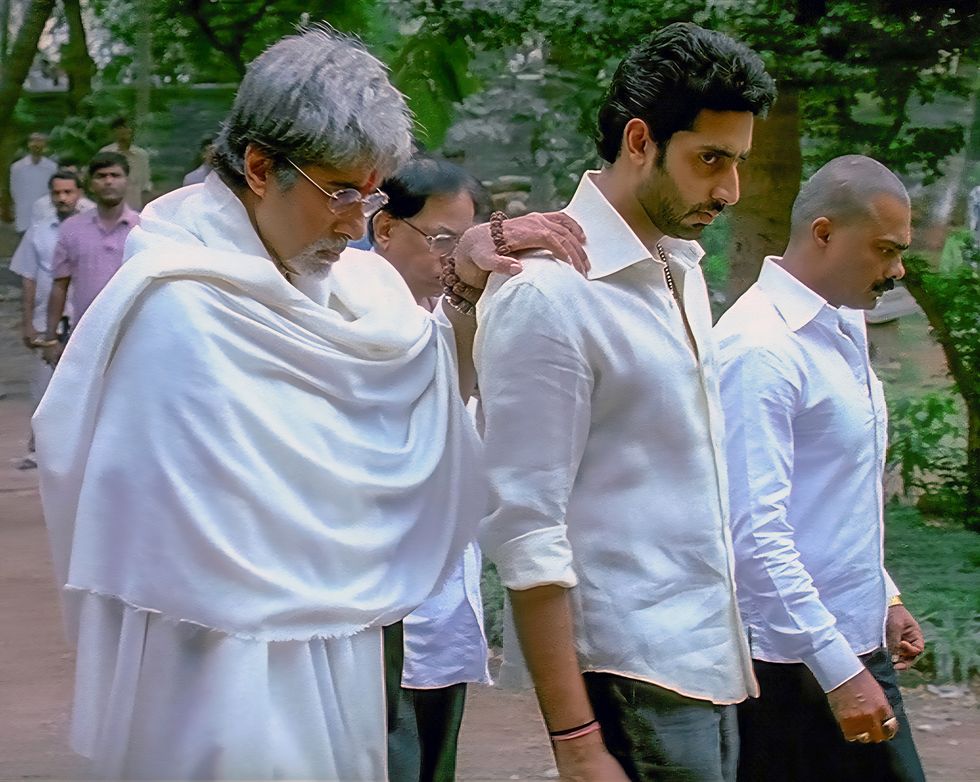 A still from Sarkar, inspired by 'The Godfather' and rooted in Indian politicsIndia Glitz
A still from Sarkar, inspired by 'The Godfather' and rooted in Indian politicsIndia Glitz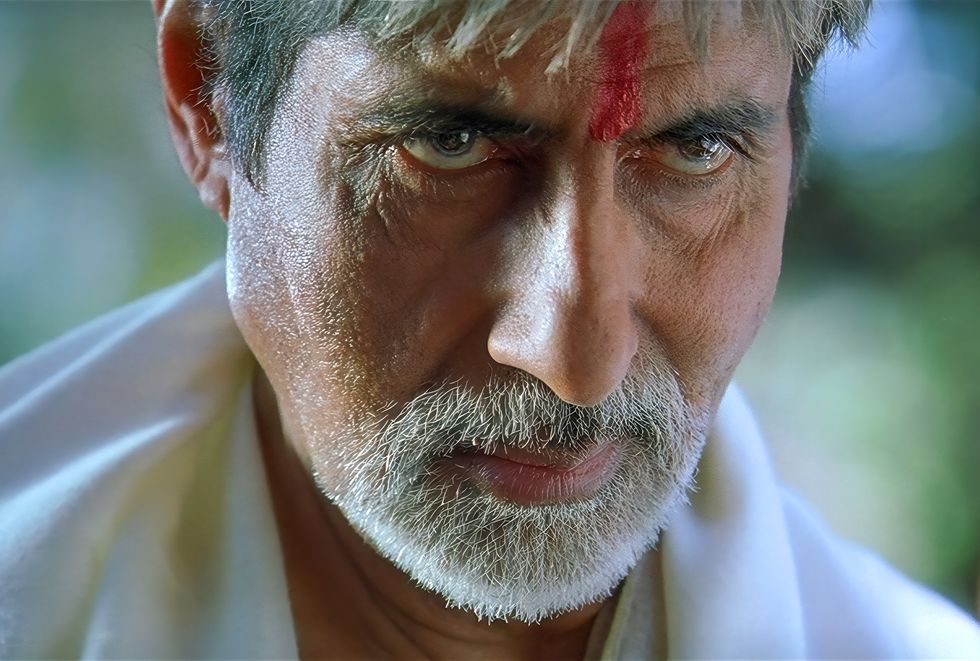 Sarkar became a landmark gangster film in Indian cinemaIndia Glitz
Sarkar became a landmark gangster film in Indian cinemaIndia Glitz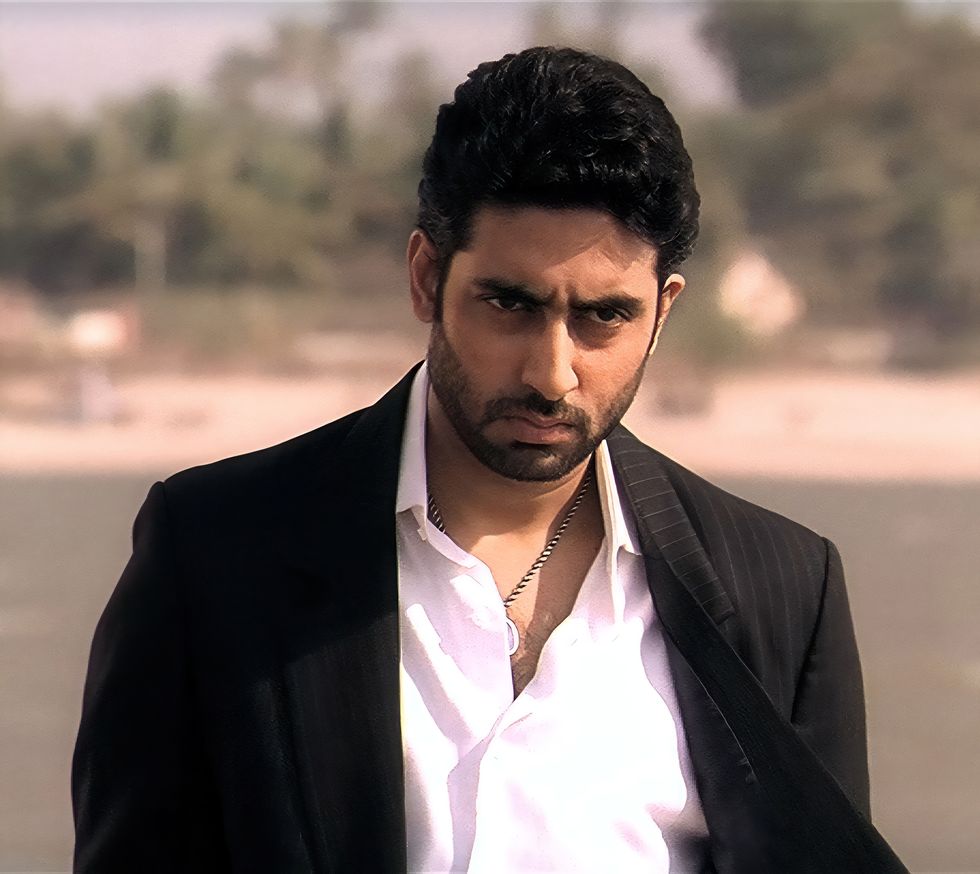 The film introduced a uniquely Indian take on the mafia genreRotten Tomatoes
The film introduced a uniquely Indian take on the mafia genreRotten Tomatoes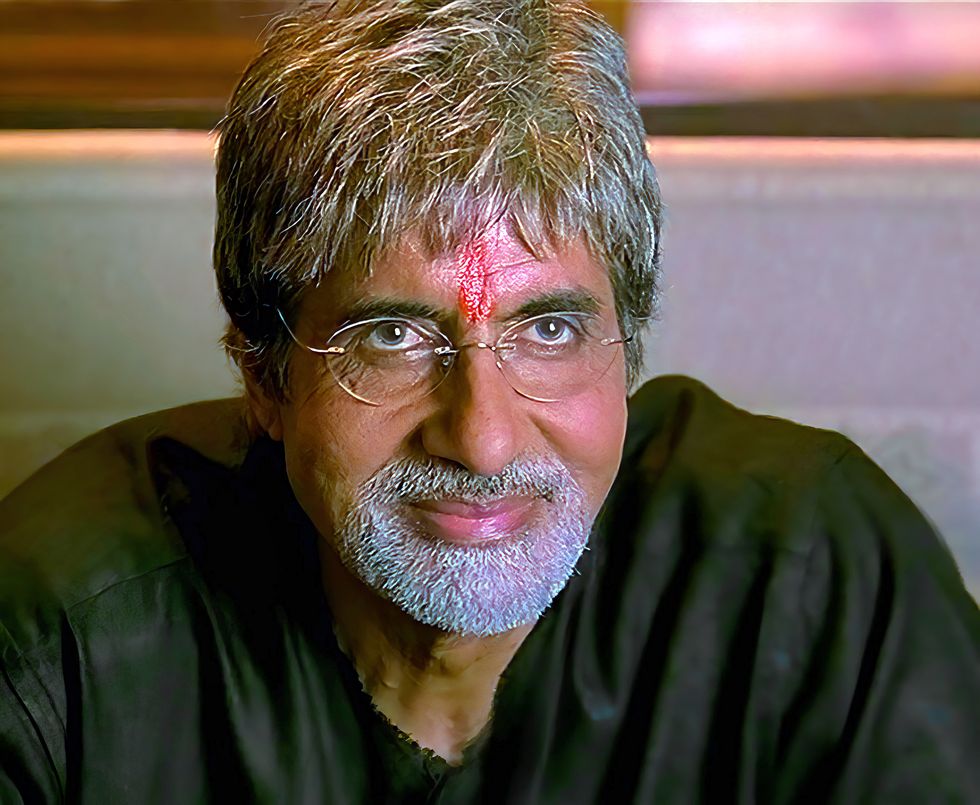 Set in Mumbai, Sarkar portrayed the dark world of parallel justiceRotten Tomatoes
Set in Mumbai, Sarkar portrayed the dark world of parallel justiceRotten Tomatoes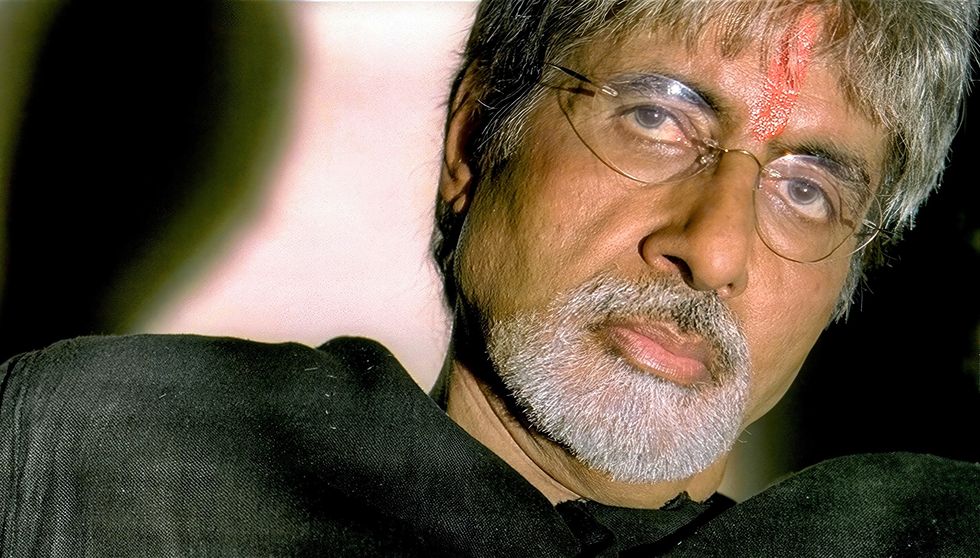 Ram Gopal Varma’s Sarkar marked 20 years of influence and acclaimIMDb
Ram Gopal Varma’s Sarkar marked 20 years of influence and acclaimIMDb
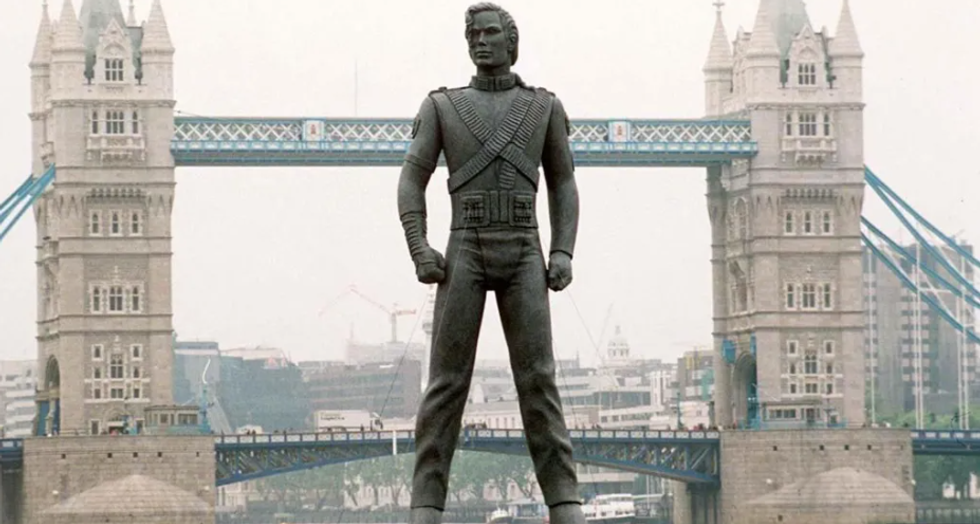 The statues were the product of a transatlantic effortGetty Iamges
The statues were the product of a transatlantic effortGetty Iamges